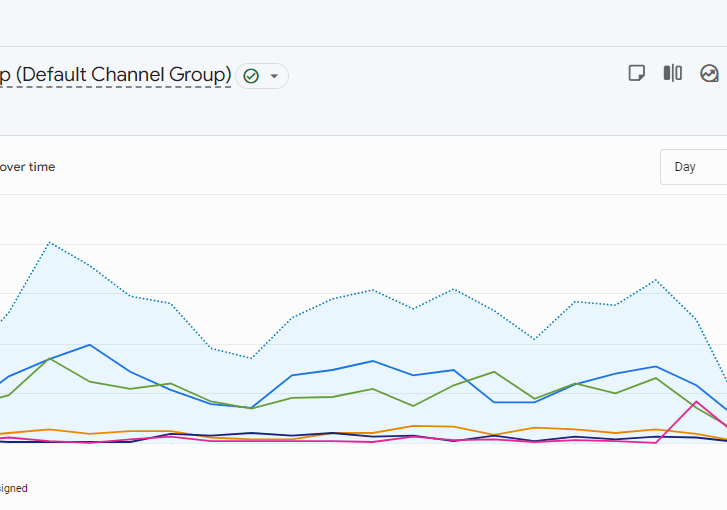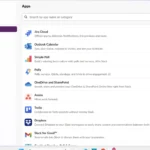From Keywords to Conversations: SEO in the Generative Era

Search has always been about connecting people to answers, but the way users search has changed dramatically.
Gone are the days when short, keyword-heavy queries dominated. Today, people engage with search engines more naturally—asking full questions and expecting instant, tailored responses. The rise of generative AI has accelerated this shift, reshaping user expectations and shortening the path to information.
For businesses and marketers, this evolution means SEO can no longer rely on keyword matching alone. To stay visible, strategies must adapt to how users want their search journeys to happen, and how they want the answers they look for presented to them.
Your survival in the organic search landscape depends on how well you understand these shifts, and how fast you can evolve with them.
TL;DR
| Section | What You Need to Know |
| Search Behavior | AI Overviews cut CTR (8% vs 15%), more zero-click searches, users trust confident AI answers, traffic drops for publishers. |
| Why | Better AI models, faster answers, memory for follow-ups, strong design/citations build trust. |
| Implications | Visibility ≠ clicks, focus on quality/intention, authority & trust more critical. |
| Quick Wins for SEO | Add direct answers, update schema, test prompts, strengthen author bios, capture emails. |
| New KPIs | Track citation share, intended-click rate, engagement depth, prompt-driven traffic. |
What’s Changing in Search Behavior
AI-powered tools are becoming a core part of how people search.
In the U.S., 21% of users now turn to platforms like ChatGPT, Claude, Gemini, Copilot, Perplexity, and Deepseek more than 10 times a month—up from just 8% adoption in 2023 to 38% in 2025. Gen Z, in particular, shows strong trust in these tools, and AI overviews are increasingly embedded directly into search results.
This shift is transforming not only where people search but also how they engage with information. And as AI answers more queries upfront, the ripple effects are clear:
- Fewer clicks, more in-SERP satisfaction. AI Overviews and summaries often answer queries directly, reducing click-throughs for top organic results. Studies show significant CTR drops when AI Overviews appear.
- Zero-click searches are rising. Users who see an AI summary click traditional links much less often than before.
- Search is becoming more conversational. Users increasingly ask a broad question and then follow up iteratively in the same session — the AI remembers context across turns, so the session becomes a compact discovery-and-decision loop. This behavior shortens the distance from research to action.
- Trust and presentation shape outcomes. Design and content elements (citations, tone, confidence signaling) influence whether users accept AI answers — even if those answers are sometimes incorrect. This magnifies the importance of being included and accurately cited.
- Publishers are feeling it. Major outlets and trade press report measurable referral traffic declines and are rethinking reliance on organic search as the primary distribution engine.
So what’s driving these shifts in how people search? The rise of AI isn’t just about new tools appearing in the results page — it’s about how those tools fundamentally change user expectations.
Take, for example, this result for “how do i start SEO on my website”

In place of traditional blue links is now a result that synthesizes all the information the user (presumably) needs to answer their concern.
As people experience faster, more conversational, and seemingly complete answers, their habits adapt around the efficiency AI provides. That evolution comes down to a few key forces:
- Better language understanding: Models synthesize, summarize, and map user intent from a single, conversational prompt.
- Convenience wins: Humans prefer fast, frictionless answers; a succinct AI summary often “feels” finished.
- Context stacking: Multi-turn memory means fewer, deeper queries — the AI narrows recommendations without users re-entering new keyword queries.
- Presentation bias: Well-crafted, confident prose with citations looks authoritative and reduces the incentive to verify.
What this Means for Brands, Publishers, and Webmasters
The fact that you searched for this topic, found this article, and kept reading all the way here shows you already understand these shifts aren’t just theory — they’re directly shaping how your site wins visibility, traffic, and trust. Here’s what being “seen” by AI really means in practice:
- Visibility=/=site visits. If an AI includes your content in a summary but the user never clicks, your brand’s traffic, ad revenue, and direct relationship with that user are at risk.
- Quality> volume (for now). Visits that do arrive tend to be further down the funnel and higher intent — potentially more valuable per session.
- Reputation & metadata matter. Platforms favor sources they trust — clear authorship, up-to-date facts, structured data, and explicit expertise raise the chance of being surfaced and cited. Make sure you know how to do your schema markups, make an author’s page, and update your content when needed.
- Trust fragility. Users can be misled by plausible but wrong AI answers. If your content is omitted or misrepresented, it’s hard to correct the impression
Quick FAQ on AI and SEO
With AI becoming a central part of how people search, you might wonder: is traditional SEO still relevant? If you’ve been asking questions like these, you’re in the right place — here’s what you need to know:
Q: Will SEO die?
A: No. SEO evolves. The ranking signal set expands: structured data, E-E-A-T, snippet-friendly copy, and content that feeds iterative prompts matter more. Organic visibility still matters — but “visibility” now includes being cited inside AI summaries, not just ranking position.
Q: Should we fight AI Overviews?
A: Not practical long-term. Instead, optimize to appear in those summaries or to serve as the next-click resource when users want more than the summary.
Q: How do we test if an AI is using our content?
A: Run representative prompts in AI Mode, ChatGPT, and Perplexity; save responses and record whether your domain appears in citations or recommended links. You can also track click-through rates from common AI surfaces through filter settings in GA4 (more on that further down in this article).
A Checklist for Quick Wins You Can Finish in a Day
Feeling overwhelmed and don’t know where to start? The good news is that you don’t need to overhaul your SEO strategy just yet. Here’s a quick checklist you can work on to start adapting your pages to AI-driven search:
- Add a 1–2 sentence “direct answer” near the top of high-value pages.
- Add/update structured data (FAQ, HowTo, Article) for your top pages.
- Create a “next questions” block on product, service, and pillar pages (3–5 follow-ups).
- Run 10 conversational prompts in Google AI Mode, ChatGPT, and Perplexity; capture whether your site is cited.
- Audit your author bios to make sure they’re complete and establish your authority, and add explicit citations to source material.
- Build an email capture flow on pages losing organic referrals (to reclaim audience).
These steps help your content stay discoverable, citable, and engaging, laying the foundation for a more comprehensive AI-focused SEO strategy covered in my upcoming AI search/AEO/GEO playbook.
New Measurements & KPIs You Should Be Tracking
With these shifts in how users search, how you should position your website to meet them, and how you guide them through new journeys, it’s clear that the way you track the ROI of your website efforts must evolve too. Traditional metrics like pageviews and rankings are no longer enough.
- Citation share in AI summaries (how often your domain is cited in AI Overviews/Perplexity /ChatGPT/other Generative Search sources) — treat this like “featured snippet ownership.”
- Intended-click rate — of visits from search, how many convert or spend meaningful time (compare pre/post AI).
- Engagement per click (pages/session, conversions per organic visitor) — quality vs. quantity.
- Prompt-driven traffic — traffic from queries that match conversational prompts you’ve tested.
- Brand lift & direct queries — search for your brand name in AI contexts (are people asking the AI about you directly?).
Tracking AI/Generative Engine Sessions in Google Analytics 4

To track traffic coming from AI tools (like Chatgpt):
- Go to Reports> Acquisition> Traffic Acquisition to access your traffic data.
- At the top, click “Add comparison.”
- Set the filter to Referral & Affiliate traffic and click Apply.
- Add another filter by selecting Dimension> Session Source/Medium.
- For Match Type, choose “matches regex.”
- In the Value field, paste the regex below, then click Apply:
(.*gpt.*|.*chatgpt.*|.*openai.*|.*neeva.*|.*writesonic.*|.*nimble.*
|.*outrider.*|.*perplexity.*|.*google.*bard.*|.*bard.*
|.*edgeservices.*|.*gemini.*google.*)
If you want to append new sources to the regex above, then follow these steps:
- Copy the full regex expression.
- Before the closing parenthesis ), add a | (pipe symbol).
- Insert your new source wrapped with .* so it can match variations.
- You can also use .* before and after the word to capture variations (e.g., chatgpt, chatgpt.com, ai-chatgpt).
Key Takeaway
Search has evolved from short keyword inputs to conversational, AI-driven experiences where answers are synthesized directly in the SERP. To stay visible, brands need content that is clear, authoritative, and structured in ways AI can cite and surface. Just as important, they must diversify how they build direct relationships with audiences outside of search.
This shift makes it clear: SEO strategies must go beyond rankings. Optimizing for AI-driven visibility, strengthening brand authority, and meeting user intent at every stage are now essential. The brands that adapt to these changes will not only keep their search presence strong but also future-proof their digital strategies in the generative era.



















Comment here